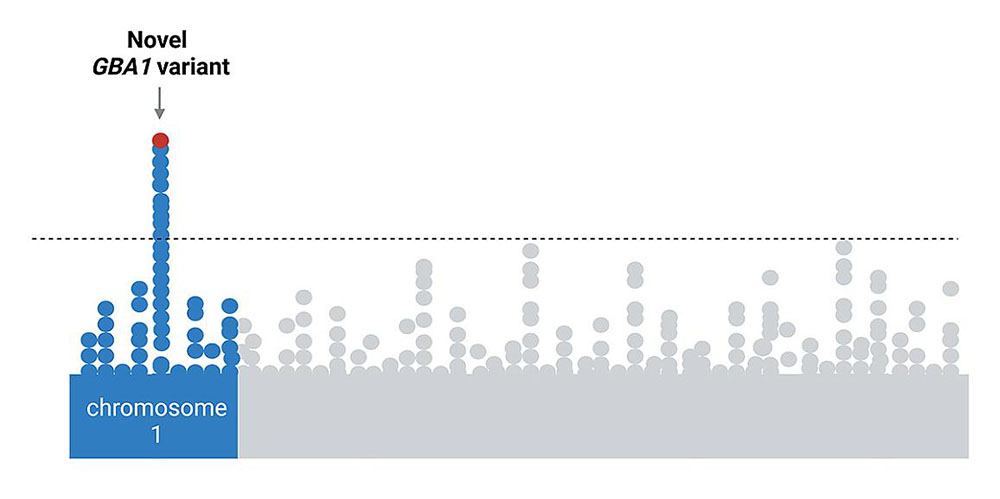Parkinson’s disease gene variant found in study of some people of African ancestry
NIH-supported, international study underscores importance of research of diverse populations
A gene variant found almost exclusively in the genomes of people of African ancestry increases the risk of developing Parkinson’s disease, according to an international study of nearly 198,000 participants with this genetic background. Published in The Lancet Neurology, the study results suggest the risk may be linked to a variant in the gene encoding β-glucocerebrosidase (GBA1), a protein known to control how cells in the body recycle proteins.
The study was led by scientists at the National Institutes of Health; the University College, London; and the University of Lagos, Nigeria. Although more research is needed to understand the role of environmental and other factors in these populations, the scientists found that those who carry one copy of the gene are about 1.5 times more likely to have Parkinson’s disease than those who have no copies whereas those who carry two copies are about 3.5 times more likely.
“To effectively treat Parkinson’s and truly any disease, we must study diverse populations to fully understand what the drivers and risk factors are for these disorders,” said Andrew B. Singleton, Ph.D., director, NIH Intramural Center for Alzheimer’s Related Dementias (CARD) and a study author. “These results support the idea that the genetic basis for a common disease can differ by ancestry, and understanding these differences may provide new insights into the biology of Parkinson’s disease.”

Scientists discovered a gene variant, found almost exclusively in the genomes of individuals of African ancestry, that increases the risk of having Parkinson’s disease. Image created on BioRender.com, courtesy of Singleton lab
This page was last updated on Thursday, August 24, 2023